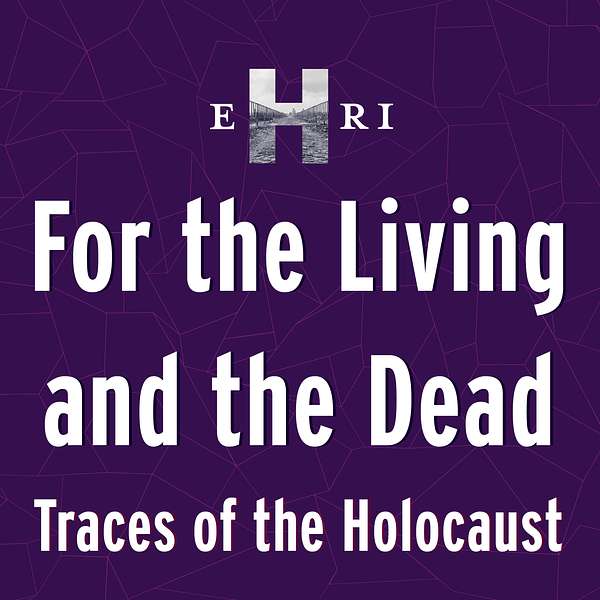
For the Living and the Dead. Traces of the Holocaust
For the Living and the Dead. Traces of the Holocaust
Life-Saving Linoleum
Use Left/Right to seek, Home/End to jump to start or end. Hold shift to jump forward or backward.
In Life-Saving Linoleum, we talk about a seal forged out of linoleum by a man named Endre Káldori. We hear about how Káldori, with the watchmaker skills he learnt from his grandfather, a simple piece of linoleum, much luck, and an incredible amount of daredevilry, saved many family members and friends.
Hungary joined the Axis Alliance in November 1940 and eventually, together with Germany, entered the state of war with the Soviet Union in June 1941. Following the catastrophic losses at Stalingrad between 1942-43, the Hungarian regent tried to take the side of the Western Allies, but German troops occupied Hungary in March 1944.
The situation of the Hungarian Jews became increasingly difficult. Racial laws were passed between 1938 and 1941 and many Jewish men were forced into labour service. Initially, however, Hungarian Jews lived in relative safety as the Hungarian authority only targeted non-Hungarian Jews, but after March 1944, Hungarian Jews were also deported and killed, or isolated in special houses and ghettos. Endre did everything he could to save the lives of his family and those nearby. With a great amount of bravery, he forged documents and seals that helped people to get out of dangerous situations.
The seal is now part of the Endre Káldori Collection, a unique collection of written documents, photos and objects, in the archive of the Holocaust Memorial Center in Budapest. The collection consists of the hand-made linoleum seals, fake papers, blank forms of certificates, fake birth certificates etc. A unique object in the collection is a photo album. The album is full of photos and drawings prepared by Endre Káldori for his daughter Zsuzsanna and tells the story of the family's hiding during the Holocaust and the liberation.
Featured guest:
András Szécsényi is a research fellow in the Historical Archives of the Hungarian State Security in Budapest and holds a Ph.D. degree from ELTE (Budapest). He has worked as Head of Collections in the Holocaust Memorial Center in Budapest between 2005 and 2017. Podcast host is Kevania de Vries-Menig.
Music accreditation: Blue Dot Sessions. Tracks - Opening and closing: Stillness. Incidental, Gathering Stasis, Pencil Marks, Uncertain Ground, Marble Transit and Snowmelt. License Creative Commons Atttribution-NonCommercial 4.0 International (BB BY-NC 4.0).
For the testimony: Holocaust Documentation Center and Memorial Collection Public Foundation, Budapest, Hungary
- Music accreditation: Blue Dot Sessions. Tracks – Opening and closing: Stillness. Incidental, Gathering Stasis, Pencil Marks, Uncertain Ground, Marble Transit and Snowmelt. License Creative Commons Atttribution-NonCommercial 4.0 International (BB BY-NC 4.0).
- Andy Clark, Podcastmaker, Studio Lijn 14

